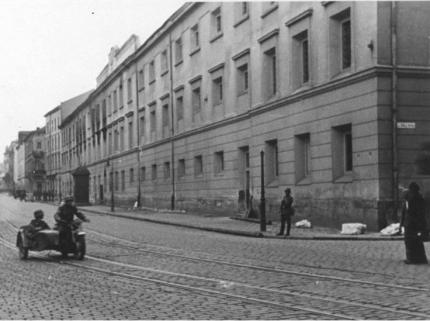
One of the KGB’s master assassins reared his head in Kyiv this summer.
Bohdan Stashynsky killed two Ukrainian émigré nationalists in Munich in the late 1950s and then, after defecting to West Berlin in 1961 and being tried in Karlsruhe in 1962, he received an eight-year prison sentence, was released after four, and then proceeded to fall off the face of the earth. Now, at 80, the ex-assassin has apparently decided to set the record straight by telling his side of the story to journalist Natalya Prykhodko. As Prykhodko tells it, she’d been contacted by a retired officer of the Ukrainian Security Service who said Stashynsky “feared dying and taking some secrets to his grave. And why you? Because I vouched for you.”
If the man who spoke with Prykhodko is the genuine article, and if he was telling the truth, then he had some interesting things to say. For starters, he confirms the long-standing émigré suspicion that the unexpected death, in London in early 1957, of Danylo Skoropadsky, the son and heir of Hetman Pavlo Skoropadsky, the leader of the Ukrainian monarchist movement, was the work of another KGB assassin testing a prototype of the poison air gun Stashynsky used on his victims, Lev Rebet in late 1957 and Stepan Bandera in late 1959. Stashynsky also confirms another long-standing suspicion—that the émigré nationalists in Munich were completely penetrated by Soviet agents, who smoothed the way for Stashynsky with vital intelligence: “my agents were even in Bandera’s closest surroundings and eventually came to occupy high posts” in the movement.
Stashynsky’s most sensational revelation, however, concerns his defection. That, apparently, was a ruse developed by the head of the Soviet KGB, Aleksandr Shelepin: “Shelepin called me in for a confidential conversation that took place in Moscow, outside, and told me about his plan: I should travel again to West Germany and surrender to the authorities and afterwards, during the investigation and trial, tell them about my involvement in the killing of Bandera.” After Prykhodko says, “That’s odd. Why would Shelepin want that?,” Stashynsky continues: “He wasn’t taken seriously—either in the USSR, or abroad…. But he wanted to become the formidable head of a formidable secret service. He wanted everyone to fear his avenging sword. Our arms are, so to speak, long and can reach anybody. It was decided to sacrifice me. It was calculated that I’d get at most ten years. But it was necessary to develop a detailed and irrefutable legend.”
In sum, the story Stashynsky spun at his trial—that he had been dragooned into the secret police, that he had decided to defect after falling in love with an East German woman, that he had been the victim of the Soviet system—was all a lie. That lie, by the way, worked. Eight years was a remarkably light sentence for two murders, and even Ukrainian émigré supporters of Bandera and Rebet believed that Stashynsky had been forced to act against his will.
That said, is today’s Stashynsky telling the truth? If, as he suggests, he was a Communist true believer from the start, then he might’ve figured that getting ten years for the good of the cause was a small price to pay for killing two enemies of the people. Alternatively, if he wavered, who was he to dispute the word of the almighty head of the Soviet secret police? Last but not least, both a true believer and a waverer might have figured that his family in Ukraine would have been subject to reprisals in case of his refusal.
In any case, Stashynsky says that, after being released in 1966, he was taken to Washington, “where they suspected a double game” (three cheers for the CIA) and dumped him in Panama. He stayed there until the coup of October 1968, at which point the story gets even more sensational: “There was chaos in the country and the American mission was attacked. In this situation I was simply extracted and transported to Paraguay. The KGB conducted the operation” (no cheers for the CIA). “I was then transferred to Africa, where I had plastic surgery and only in 1970 did I return to the USSR. At first I lived in Moscow and then, after retiring, I returned to Kyiv.”
In case you’re wondering, Stashynsky remains unrepentant about the assassinations. “I expressed my opinion [sic] about Bandera in 1959. I haven’t changed my position since then.”
Alexander J. Motyl's blog
Nov 18, 2011